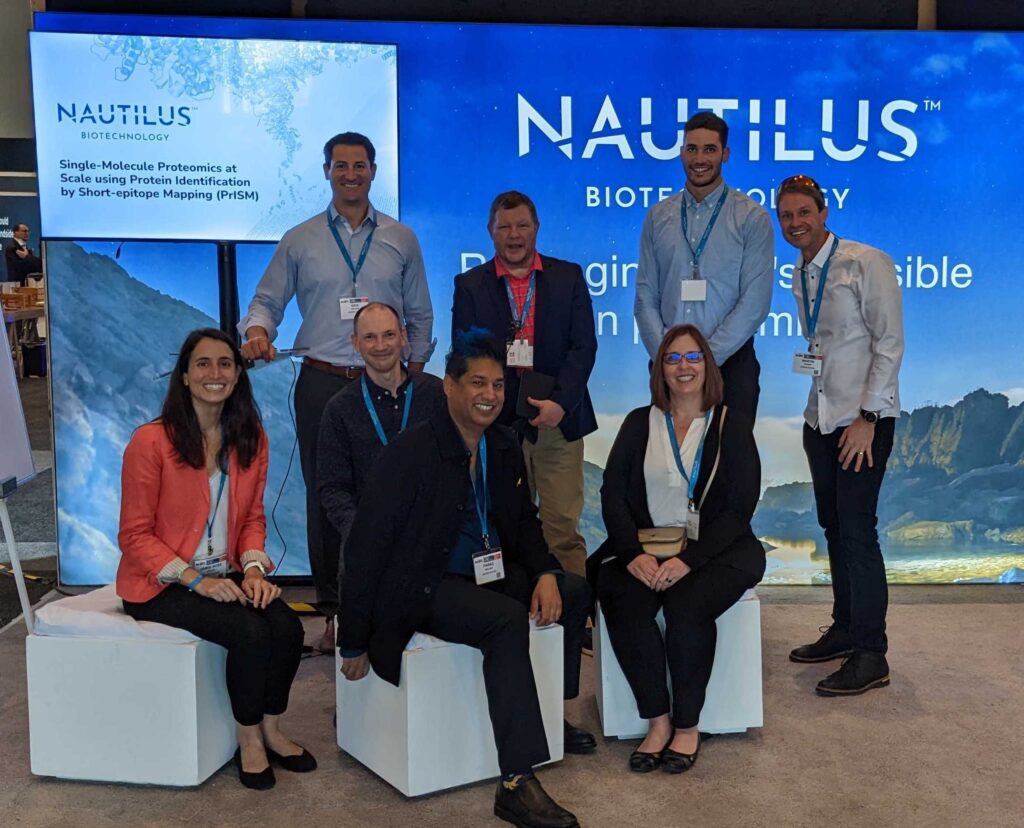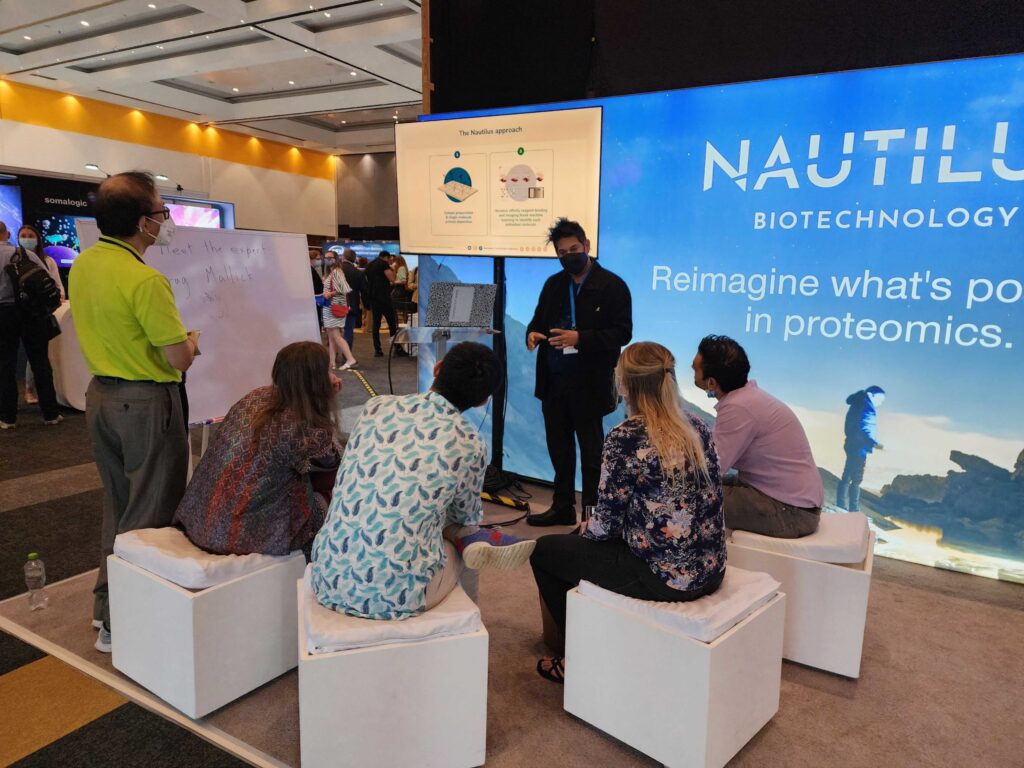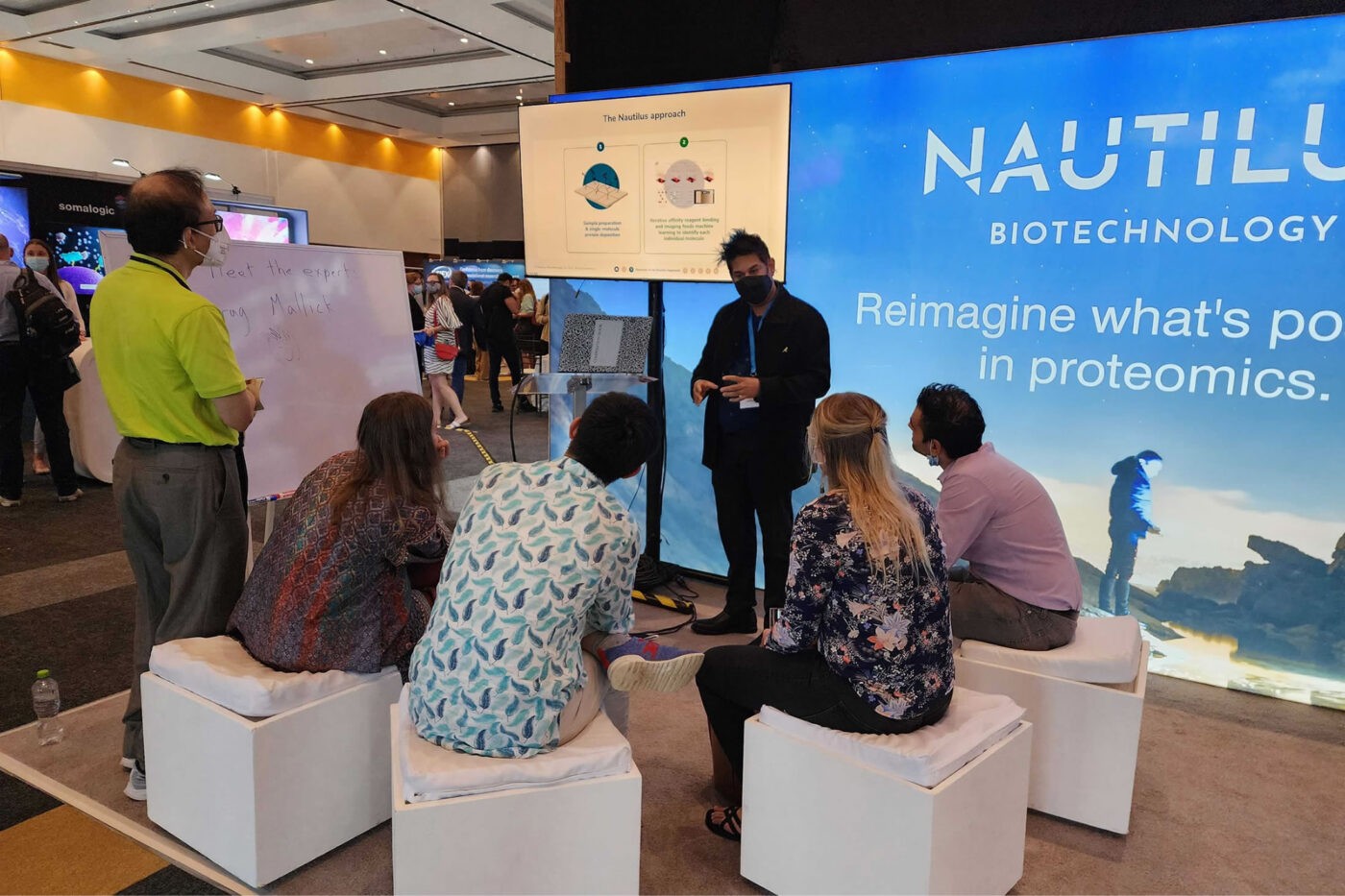
We recently attended HUPO 2022 in Cancun Mexico and had the pleasure of meeting with many brilliant researchers and industry leaders. We learned a ton at the meeting and, while it’s impossible to cover everything in one blog post, we’ve attempted to distill our experience into 3 key takeaways:
- Researchers are ready for new proteomics methodologie
- Single-molecule approaches like PrISM (Protein Identification by Short-epitope Mapping) could be an excellent fit for a wide range of research applications
- There was high enthusiasm for the First Access Challenge and some creative ideas for how PrISM could be applied in the short term
Researchers are ready for new proteomics methodologies
Proteomics researchers do fantastic things with the technologies currently at their disposal. We saw excellent talks and posters on topics ranging from single-cell proteomics, to spatial proteomics, to single-molecule proteomics. It was clear that many in the field are interested in gaining access to new ways to study the proteome. Existing technologies enable phenomenal research, but researchers are clamoring for novel means to measure more of the proteome across a wide range of samples.

Single-molecule approaches like PrISM could be an excellent fit for a wide range of research applications
Many attendees stopped by our booth to learn more about PrISM and the Nautilus technology. With the ability to measure the >95% of the proteome at scale and with single-molecule sensitivity, many researchers discussed how this type data could deliver new insights. Some discussions centered on studying rare cell populations. For instance, those interested in cancer stem cells could use PrISM to determine the protein make-up of this disease-driving cellular population. Researchers interested in the properties of immune cell subsets could potentially characterize these critical disease fighters in depth.
Other researchers were more interested in translational applications like using PrISM to determine how drug candidates impact the whole proteome. With that insight, they hope to better identify off-target effects before they manifest in patients.
Proteoforms were also a big conversation topic. Researchers were interested in measuring proteoforms to determine how protein modifications and isoforms impact key biological processes. Indeed, many individuals stopped by our booth intrigued by our ongoing research with Philip Lorenzi from MD Anderson (studying modifications to PARP) and with Genentech (studying modification to the Tau protein in Alzheimer’s disease).
These are just some of the many ways researchers could use PrISM and we are incredibly excited to see how this creative community leverages our platform in the future
There was high enthusiasm for the First Access Challenge
The First Access Challenge is designed to give select researchers the opportunity to access single-molecule proteomics at scale before anyone else. In this challenge, we’re giving researchers the opportunity to explore new areas of the proteome at a massive scale with our PrISM technology. Interested researchers can visit the First Access Challenge webpage to submit a brief research proposal outlining a 12-sample experiment. We’ll select three winners to have their data analyzed by the Nautilus team and winners will receive a final report of their data in an easy-to-interpret format. Later, winners will be reimbursed for their travel expenses when they present their data at a mutually agreed upon conference. Finally, we’ll assist the winners in writing and submitting their data in peer-reviewed scientific journals.
When we introduced the First Access Challenge to HUPO attendees, many started thinking about the novel questions they could potentially answer using Nautilus’ technology, some of which we’ve described above. We’re excited to provide them with the opportunity to answer some of these questions. It’s thrilling to invest in new journeys with researchers and enable a new, comprehensive approach to proteomics research.
MORE ARTICLES


